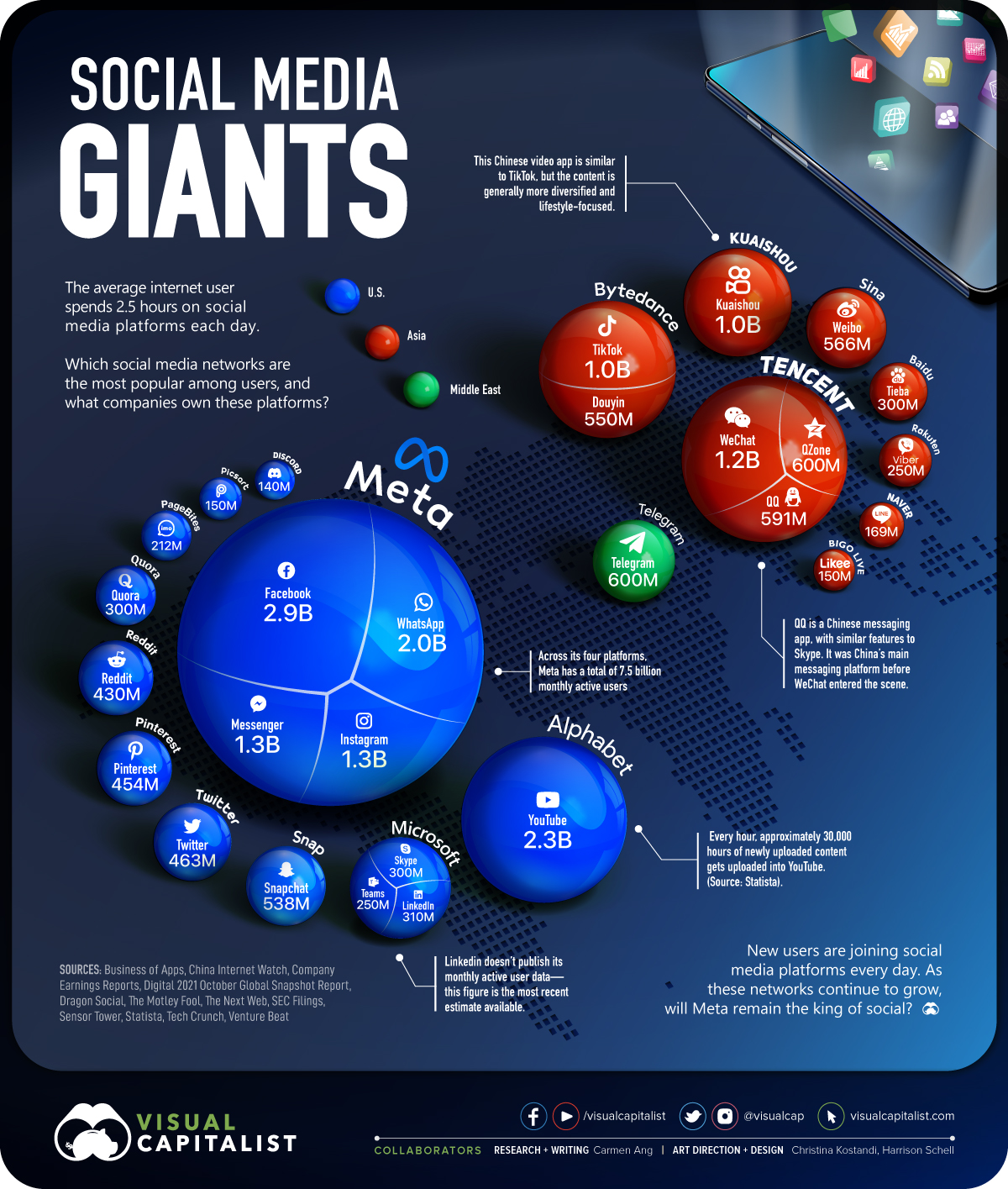
This picture illustrates the world's largest social networks, as measured by monthly active members (MAUs).
Currently, over 4.5 billion individuals worldwide use some type of social media, accounting for around 57% of the global population.
Despite the fact that social media has a large and diversified audience, only a few businesses control the bulk of the world's most popular social media platforms. Meta, the old Facebook, owns four of the top five most popular platforms.
Where do Facebook members live? The platform's largest viewership is from India, with almost 350 million users. The United States has 193.9 million users, followed by Indonesia with 142.5 million.
Not every social media behemoth is in Meta's network. Meta's second-largest platform, and third largest social network globally, WhatsApp has almost 2 billion MAUs.
Like Facebook, around 390 million WhatsApp users reside in India. Brazil has 108 million WhatsApp users.
Global Social Media? Never
While social media networks frequently cross national borders, they do not totally escape the limits and rules of our physical world. Facebook has been prohibited in China since 2009 for violating censorship laws. Facebook was also temporarily prohibited in Iran and Syria at the same time.
The Trump administration sought to impose a similar ban on TikTok in 2020, but a federal judge rejected it and the Biden administration subsequently reversed it. Despite different restrictions and hurdles, it is evident that social media has permeated users' lives (and screens) globally. As global internet availability expands, so will the number of social media users. What's your favorite social media app?
I have to say: I am extremely impressed that Facebook is the top of the list, beating platforms like Snapchat and Instagram. I don't necessarily think this is a bad thing though. Out of the three platforms I stated above, Facebook is the most political in terms of what people are posting. Problem here though is that Facebook has begun to really censor opinions and posts regarding certain political matters, but I guess at least politics and other important information is being put out there and people are noticing it.
ReplyDeleteI was not expecting Facebook to be the most popular. I thought that Instagram was the most popular form of social media but maybe thats because of my age. I am 21 and I feel like people in my age category are more likely to use Instagram over Facebook. I do understand that Facebook has been around longer and many older people use facebook.
ReplyDeleteFacebook being the leader of Social Media was a new fact to me. I was not aware that Facebook had the most amount of users. Because Facebook is the leader on Social Media then the network should effectively work to cut down fake news reporting and trolls on the site. With control of the largest social media, should also come heavy regulations about the type of information that is allowed to be broadcast to billions of other users.
ReplyDelete